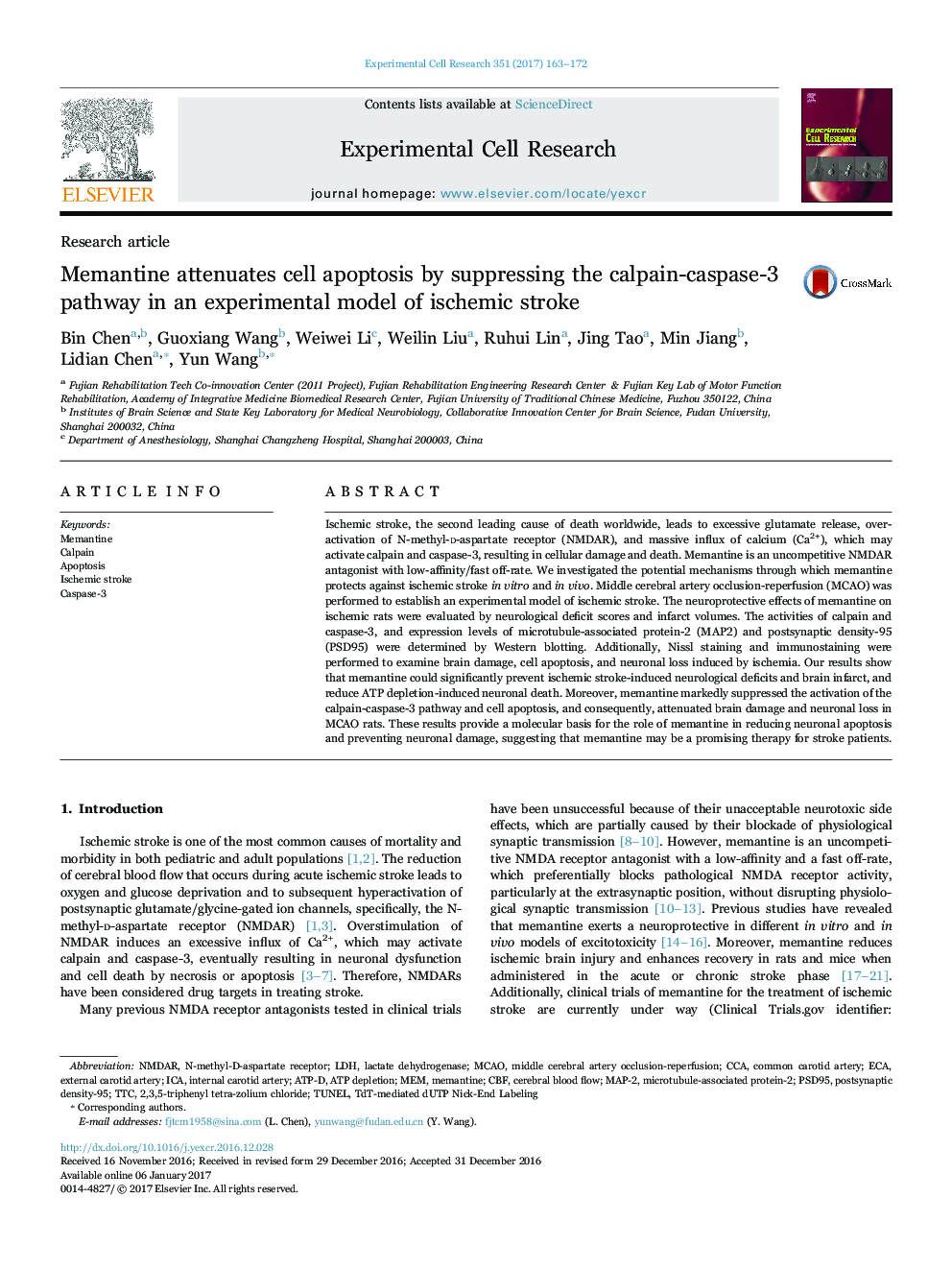| Article ID | Journal | Published Year | Pages | File Type |
|---|---|---|---|---|
| 5527272 | Experimental Cell Research | 2017 | 10 Pages |
â¢Memantine protects against ATP Depletion-induced neuronal death in cultured neurons.â¢Memantine also alleviates neurological deficits and infarct volume in MCAO rats.â¢Memantine suppresses the activation of calpain-caspase-3 pathway in MCAO rats.â¢Memantine reduces calpain-mediated cleavage of PSD95 and MAP2 in the ischemic penumbra.â¢Memantine attenuates cell apoptosis in the penumbral area of MCAO rats.
Ischemic stroke, the second leading cause of death worldwide, leads to excessive glutamate release, over-activation of N-methyl-D-aspartate receptor (NMDAR), and massive influx of calcium (Ca2+), which may activate calpain and caspase-3, resulting in cellular damage and death. Memantine is an uncompetitive NMDAR antagonist with low-affinity/fast off-rate. We investigated the potential mechanisms through which memantine protects against ischemic stroke in vitro and in vivo. Middle cerebral artery occlusion-reperfusion (MCAO) was performed to establish an experimental model of ischemic stroke. The neuroprotective effects of memantine on ischemic rats were evaluated by neurological deficit scores and infarct volumes. The activities of calpain and caspase-3, and expression levels of microtubule-associated protein-2 (MAP2) and postsynaptic density-95 (PSD95) were determined by Western blotting. Additionally, Nissl staining and immunostaining were performed to examine brain damage, cell apoptosis, and neuronal loss induced by ischemia. Our results show that memantine could significantly prevent ischemic stroke-induced neurological deficits and brain infarct, and reduce ATP depletion-induced neuronal death. Moreover, memantine markedly suppressed the activation of the calpain-caspase-3 pathway and cell apoptosis, and consequently, attenuated brain damage and neuronal loss in MCAO rats. These results provide a molecular basis for the role of memantine in reducing neuronal apoptosis and preventing neuronal damage, suggesting that memantine may be a promising therapy for stroke patients.
Graphical abstractSchematic illustration of memantine-mediated regulation of neuronal apoptosis through modulating the calpain-caspase-3 pathway after ischemic stroke. During acute ischemic stroke, excessive release of glutamate causes AMPA receptor over-stimulation to remove the Mg2+ block on NMDA receptor, which permits large amounts of Ca2+ to enter the cell. The increased intracellular Ca2+ leads to over-activation of calpain, subsequent PSD95 and MAP2 cleavage, and caspase-3 release, eventually contributing to cellular damage and death by necrosis or apoptosis. We have demonstrated that memantine, an uncompetitive NMDA receptor antagonist, blocks excessive NMDA receptor activity and Ca2+ influx which, in turn, prevents further cellular damage.Download high-res image (189KB)Download full-size image
